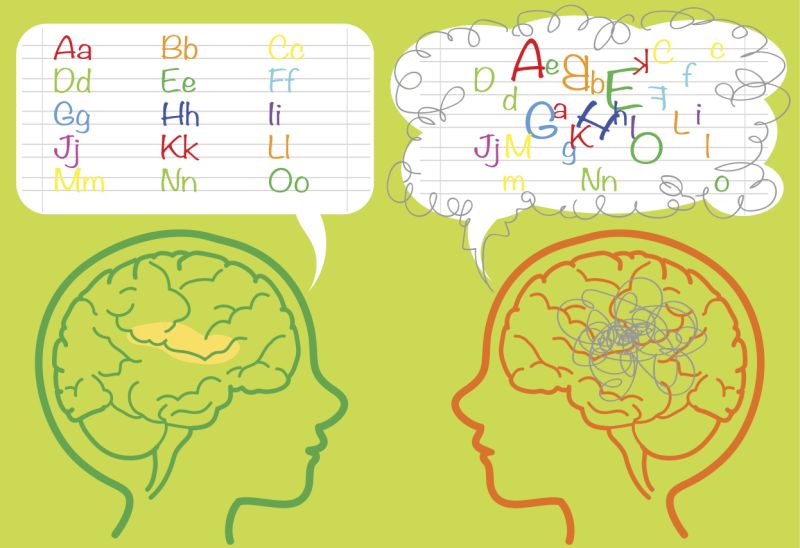In this comprehensive guide, we will discuss everything you need to know about specific learning disabilities.
Contents
Understanding Specific Learning Disability
A specific learning disability is a neurological disorder that hampers the ability to process information. As a result, it can affect any aspect of learning, including reading, writing, math, and speaking. Consequently, this condition can make it difficult for people to achieve their fullest potential in life.
Types of Specific Learning Disability
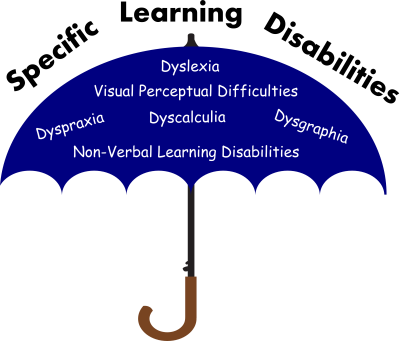
There are different types of specific learning disabilities – such as dyslexia, dyscalculia, and dysgraphia. Evidently, each type has its own unique set of symptoms and causes.
Dyslexia: A difficulty in reading caused by problems with phonemic awareness, phonology, and word decoding skills.
Dyscalculia: A difficulty in math caused by a lack of basic number sense, poor problem-solving skills, and inability to conceptualize mathematical concepts.
Dysgraphia: A difficulty in writing caused by problems with motor skills, handwriting, and spelling.
Dyspraxia: A difficulty in coordinating movement caused by problems with balance, posture, and timing.
Symptoms Of Specific Learning Disability
The symptoms of a specific learning disability can vary from person to person. However, some common symptoms include:
Symptoms Of Dyslexia
The symptoms of dyslexia can vary depending on the severity of the disorder. However, some common symptoms include:
Difficulty reading aloud or silently: People with dyslexia often have difficulty reading accurately and fluently. As a result, they may also have trouble understanding what they read.
Difficulty with phonemic awareness: Dyslexia can cause problems with identifying, manipulating, and remembering the individual sounds that make up words.
Poor word decoding skills: People with dyslexia often have trouble figuring out the meaning of words based on their letter combinations.
Difficulty with spelling: Dyslexia can cause problems with remembering how to spell words correctly.
Symptoms Of Dyscalculia
The symptoms of dyscalculia can vary depending on the severity of the disorder. However, some common symptoms include:
Difficulty making sense of quantities: People with dyscalculia often have difficulty understanding the size of numbers and how they relate to each other.
Difficulty with basic math operations: People with dyscalculia may have trouble adding, subtracting, multiplying, and dividing numbers.
Poor problem-solving skills: People with dyscalculia often find it difficult to figure out how to solve math problems.
Inability to conceptualize mathematical concepts: People with dyscalculia may have trouble understanding basic concepts like fractions and decimals.
Symptoms Of Dysgraphia
The symptoms of dysgraphia can vary depending on the severity of the disorder. However, some common symptoms include:
Poor handwriting skills: People with dysgraphia often have difficulty writing neatly and legibly.
Inability to spell words correctly: Dysgraphia can cause problems with remembering how to spell words correctly.
Poor motor skills: People with dysgraphia may have trouble controlling their hand movements when writing.
Symptoms Of Dyspraxia
The symptoms of dyspraxia can vary depending on the severity of the disorder. However, some common symptoms include:
Inability to coordinate movement: People with dyspraxia often have trouble coordinating their movements correctly. This can cause problems with tasks like walking, running, and handling objects.
Poor balance and posture: People with dyspraxia may have trouble maintaining their balance and posture. This can cause problems with tasks like standing, sitting, and walking.
Timing issues: People with dyspraxia may have difficulty timing their movements correctly. This can cause problems with tasks like speaking, eating, and brushing teeth.
Reasons Behind Specific Learning Disability
Several risk factors can increase a person’s chances of developing a specific learning disability. Some of the most common risk factors include:
Having a neurological disorder: People who have neurological disorders like ADHD or autism spectrum disorder are more likely to develop a specific learning disability.
Environmental factors: Exposure to certain environmental toxins or inadequate nutrition during early development. Thus, it can contribute to the development of a specific learning disability.
Having a family history of specific learning disabilities: If someone in your family has a specific learning disability, you are more likely to develop one too.
Being born with low birth weight: Infants who are born with a low birth weight are also at increased risk for developing specific learning disabilities.
Being born prematurely: Premature infants are at greater risk for developing specific learning disabilities.
DSM On Specific Learning Disability
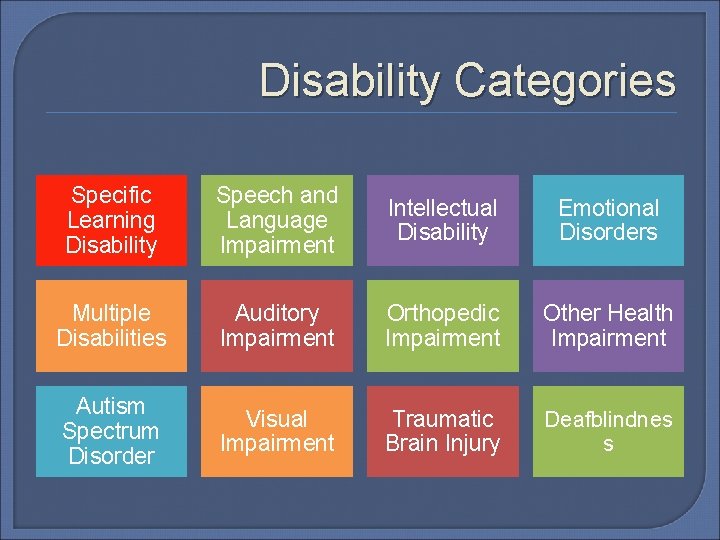
The Diagnostic and Statistical Manual of Mental Disorders (DSM) is a manual published by the American Psychiatric Association that provides a classification system for mental disorders. The DSM includes a classification system for specific learning disabilities, which are called “specific developmental disorders.”
There are three categories of specific developmental disorders:
- Specific Learning Disorder – This category includes disorders that affect a person’s ability to read, write, spell, or do the math.
- Dyspraxia – This category includes disorders that affect a person’s ability to plan and coordinate motor movements.
- Asperger Syndrome – This category includes disorders that affect a person’s social skills and communication abilities.
DSM And Its Criteria
The DSM provides a set of criteria that must be met for a diagnosis of a specific learning disability to be made. These criteria include:
A significant discrepancy between the person’s intellectual ability and their academic achievement: The person’s academic skills must be significantly below what would be expected based on their intelligence.
A significant difficulty with one or more academic skills: The person must have significant difficulty with reading, writing, math, or organizing and planning.
The symptoms of the specific learning disability must cause clinically significant impairment in social, academic, or occupational functioning: The symptoms of the disorder must interfere with the person’s ability to function adequately in their everyday life.
NOTE: A specific learning disability is a broader term that includes several different disorders, while a specific learning disorder is a specific type of disorder that falls under the category of specific learning disabilities.
Living With Specific Learning Disability
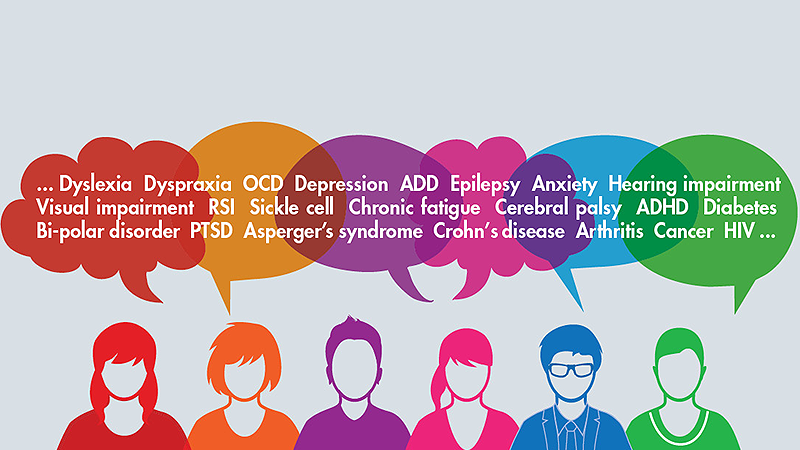
People with a specific learning disability can face many challenges in their daily lives. Here are some of the most common challenges they may encounter:
In Daily Life Activities
Finding it hard to complete household tasks: People with a specific learning disability may find it difficult to complete everyday household tasks.
Needing assistance with personal hygiene: People with a specific learning disability often need assistance with personal hygiene tasks.
In Academics
Having trouble keeping up with schoolwork: People with a specific learning disability may struggle to keep up with the academic demands of school.
Feeling embarrassed or ashamed of their struggles: People with a specific learning disability may feel embarrassed or ashamed about their struggles in school.
Finding it hard to make friends: People with a specific learning disability may find it difficult to make friends in school.
In Social Situations
Finding it difficult to make friends: People with a specific learning disability may find it difficult to form friendships with other people.
Feeling socially isolated: People with a specific learning disability may feel socially isolated from their peers.
Having trouble understanding social cues: People with a specific learning disability may have trouble understanding the social cues that other people are giving them.
In Employment Settings
Finding it difficult to keep a job: People with a specific learning disability often find it difficult to maintain employment over an extended period.
Having trouble with tasks that are required at work: People with a specific learning disability may have trouble completing the tasks that are required of them at their job.
Getting overwhelmed by stress: People with a specific learning disability may find it difficult to handle the stress of a job.
Coping With Specific Learning Disability
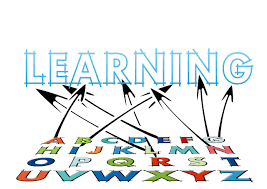
Despite the challenges they face, people with a specific learning disability can still lead happy and fulfilling lives. Here are some of the things they can do to overcome the challenges they face:
Accept themselves for who they are: People with a specific learning disability should accept themselves for who they are. As a result, this will help them to cope better with the challenges they face.
Seek out support from others: People with a specific learning disability can seek out support from their friends and family members. Furthermore, they can also seek out support from professionals who can help them to cope better with their disabilities.
Stay positive: People with a specific learning disability should stay positive and have hope for the future. As this will help them to overcome the challenges they face.
Role of Parents
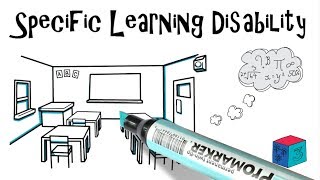
Parents play a very important role in the lives of their children with a specific learning disability. Therefore, here are some of the things parents can do to help their children:
Stay Informed: Parents should stay informed about the diagnosis and treatment of their child’s specific learning disability. Since this will allow them to provide support to their child both at home and at school.
Participate In Therapy: Parents should participate in their child’s therapy sessions whenever possible. As a result, this will help the child to feel supported and motivated to continue therapy.
Encourage Homework: Parents should encourage their children to do their homework, even if it is difficult. Consequently, this will help the child to develop a good work ethic and improve their academic skills.
Encourage Them to Seek Out Support: Parents should encourage their children to seek out support from friends and family members. Furthermore, they should encourage them to seek out support from professionals who can help them to cope better with their disabilities.
Help Them Stay Positive: Parents should help their children stay positive and have hope for the future. As a result, this will help them to overcome the challenges they face.
Provide Them With Resources: Parents can provide their children with resources, such as books, articles, or websites. Consequently, it can help them to learn more about their specific learning disability.
Ensure They Get the Right Treatment: Parents should ensure that their children receive the right treatment for their specific learning disability. Consequently, this will help them to cope better with the challenges they face.
Role of Teachers
Teachers play a very important role in the lives of students with a specific learning disability. Therefore, here are some of the things teachers can do to help their students:
Assess Their Needs: Teachers should assess the needs of their students with a specific learning disability and provide them with the appropriate accommodations.
Create A Supportive Environment: Teachers should create a supportive environment in which students feel comfortable asking for help. Therefore, teachers should provide resources such as textbooks, worksheets, and homework assignments to their students.
Encourage Them to Persevere: Teachers should encourage their students with a specific learning disability to persevere and continue trying even if they face challenges.
Use Teaching Tools: Teachers can use different teaching tools, such as worksheets, flashcards, or games. Consequently, these tools help students with a specific learning disability learn more effectively.
Educational Accommodations
Many different accommodations can be made in the classroom setting to help students with a specific learning disability. Therefore, here are some of the most common accommodations:
Testing Accommodations: Testing accommodations are adjustments that can be made to the testing environment or test format to help students with a specific learning disability. Thus, some common testing accommodations include extended time, a distraction-free environment, and the use of a calculator.
Assistive Technology: Assistive technology is equipment or software that helps people with disabilities to complete tasks. Thus, some common assistive technologies for people with a specific learning disability include text-to-speech software, screen readers, and graphic organizers.
Classroom Accommodations: Classroom accommodations are adjustments that can be made to the classroom environment to help students with a specific learning disability. Thus, some common classroom accommodations include flexible seating arrangements, breakout spaces, and visual aids.
NOTE: Teachers should monitor the progress of their students and provide feedback to parents and therapists.
Role Of Peers
Peers can also play a very important role in the lives of students with an SLD. Therefore, here are some of the things peers can do to help their classmates:
Be Supportive: Peers should be supportive of their classmates who have a specific learning disability.
Help Them Understand Social Cues: Peers can help their classmates with a specific learning disability understand the social cues that other people are giving them.
Talking To a Professional
If you or someone you know is struggling with an SLD, it may be helpful to talk to a professional. Here are some of the professionals who can help:
School Psychologists: School psychologists are professionals who specialize in the assessment and treatment of students with learning disabilities.
Occupational Therapists: Occupational therapists are professionals who specialize in the assessment and treatment of physical and occupational therapy.
Special Education Teachers: Special education teachers can help people with a specific learning disability to manage their academic struggles. Thus, they can also provide accommodations and assistance in the classroom setting.
Speech-Language Pathologists: Speech-language pathologists are professionals who specialize in the assessment and treatment of language and communication disorders.
Psychologists: Psychologists can help people with a specific learning disability to cope better with their disabilities. Furthermore, they can also provide therapy for people who are struggling emotionally because of their disabilities.
Clinical Psychologists: Clinical psychologists are professionals who specialize in the diagnosis and treatment of mental health disorders.
NOTE: If you are considering talking to a professional about your SLD, please be sure to consult with your doctor first. Since he or she can provide you with a list of professionals who would be best suited to help you. Furthermore, they can provide parents and teachers with information about SLD, medications, and accommodations.
Treatment Options
There are many different treatment options available for people with an SLD. Here are some of the most common treatment options:
Treatment for Emotional Struggles: People with a specific learning disability often struggle emotionally because of their disabilities. However, there are many different treatment options available for emotional struggles, including therapy and medication.
Therapy: Therapy is often one of the first treatments that people with a specific learning disability undergo. Furthermore, therapists can help these individuals to cope better with their disabilities and improve their daily living skills.
Medication: Some people with a specific learning disability may need medication to improve their academic performance.
Therapies For Specific Learning Disability
There are many different therapies available for people with an SLD. Here are some of the most common therapies:
Behavioral Therapy: Behavioral therapy is a type of therapy that helps people to change their negative behaviors. Consequently, this therapy can be helpful for people with a specific learning disability who have difficulty following instructions or completing tasks.
Cognitive Therapy: Cognitive therapy is a type of therapy that helps people to change the way they think. Consequently, this therapy can be helpful for people with a specific learning disability who have difficulty understanding information or solving problems.
Structured Literacy Therapy: Structured literacy therapy is a type of therapy that helps people to improve their reading skills. Therefore, this therapy can be helpful for people with a specific learning disability who have difficulty reading.
Speech and Language Therapy: Speech and language therapy is a type of therapy that helps people to improve their communication skills. Therefore, this therapy can be helpful for people with a specific learning disability who have difficulty speaking or understanding others.
Occupational Therapy: Occupational therapy is a type of therapy that helps people to improve their daily living skills. This therapy can be helpful for people with a specific learning disability who have difficulty completing tasks or organizing their time.
Medications For Specific Learning Disability
There are many different medications available for people with an SLD. Here are some of the most common medications:
Stimulants: Stimulants are medications that help people to focus and stay alert. Thus, they are often prescribed to people with a specific learning disability who have difficulty paying attention in class or completing tasks.
Non-Stimulants: Non-stimulants are medications that help people to calm down and focus. Thus, they are often prescribed to people with a specific learning disability who have difficulty controlling their emotions or completing tasks.
Experts’ View About Specific Learning Disability
“Specific learning disabilities are neurological disorders that affect the acquisition, processing, and storage of information. Evidently, these disorders can interfere with a person’s ability to read, write, spell, do the math, and communicate.” – American Psychological Association
Case Study
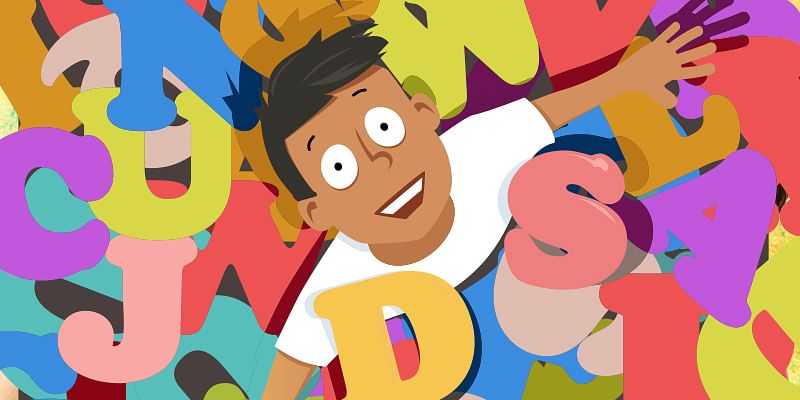
Let’s take a look at a case study of a student with a specific learning disability.
Matthew is a 14-year-old student who has been diagnosed with dyslexia. He has difficulty reading and writing, and experiences problems with spelling and grammar. Therefore, Matthew’s parents have enrolled him in tutoring sessions to help him improve his academic skills. In addition, his teacher has also provided him with accommodations such as extra time to complete tests and assignments, and a copy of the teacher’s notes.
Matthew has made progress in his tutoring sessions, but he continues to struggle with academics. Consequently, his parents are considering enrolling him in a special school for students with dyslexia. However, Matthew’s teacher is concerned that he may not be able to keep up with the curriculum at the special school and may fall behind.
The experts on specific learning disabilities can help to resolve this dilemma. As they can provide information about the best educational options for students with dyslexia. And they can help to create a plan that will ensure Matthew’s success. Furthermore, they can also provide support to Matthew’s parents and teacher, and help them to navigate the educational system.
Conclusion
There are many resources available for families and educators who are dealing with an SLD. Furthermore, the experts on SLD can provide information and support that is essential for success. Thus, with the right accommodations and interventions, students with SLD can achieve their academic goals.
A Word From Therapy Mantra
Your mental health — Your psychological, emotional, and social well-being — has an impact on every aspect of your life. Positive mental health essentially allows you to effectively deal with life’s everyday challenges.
At TherapyMantra, we have a team of therapists who provide affordable online therapy to assist you with issues such as depression, anxiety, stress, workplace Issues, addiction, relationship, OCD, LGBTQ, and PTSD. You can book a free therapy or download our free Android or iOS app.
